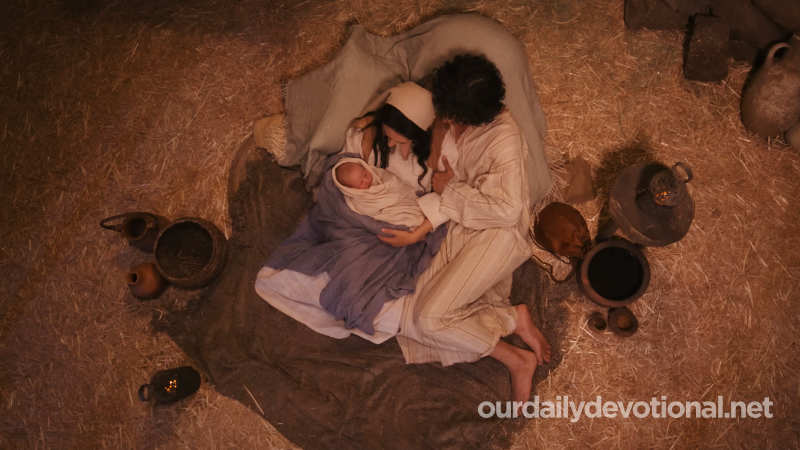Slavery dates back to ancient times. There were various ways to acquire slaves:
(a) Taking them prisoners during wars (Num. 31:9; 2 Kings 5:2; Wars 3:4, 1; 6:9, 2).
(b) By purchase from a slave dealer (Gen. 17:27; 37:28, 36; Ez. 27:13; JI. 3:6, 8).
(c) By birth in the owner's house (Gen. 17:12).
(d) Under the compensation system: the thief, unable to restitute what he had stolen, was sold as a slave; also, and against the spirit of the Mosaic law, the insolvent debtor, or his children (Ex. 22:3; 2 Kings 4:1; Neh. 5:5, 8; Am. 2:6; Mt. . 18:25).
(e) Destitute Israelites could voluntarily sell themselves, or sell their children (Ex. 21:2, 7; Lev. 25:39, 47). The price of slaves varied depending on the time and circumstances. Hebrew legislation provided for the payment of 30 shekels to the owner of a slave who died due to the negligence of a third party (Ex. 21:32). In the third century B.C., Jewish slaves in Alexandria were sold for little more than the same price: 120 drachmas (Ant. 12:2, 3).
Joseph, at the age of 17, was purchased for 20 shekels (Gen. 37:28). The legal status of a Hebrew slave was very different from that of a foreign slave. If he wished, the Hebrew slave could receive freedom after 6 years of service.
He could not be mistreated, nor could he be let go empty-handed. When the Israelite sold himself to a foreigner residing in Israel, he could be freed at the time when he had the legally stipulated ransom sum (Ex. 21:2-6; Lev. 25:43, 47-55; Jer. 34:8-16). The rights of the Israelite girl sold by her father were safeguarded thanks to particular regulations (Ex. 21: 7-11).
In the year of the Jubilee, all the Hebrew slaves were freed, both those who had decided to stay with their masters in the seventh year and those who had not yet reached the age of six (Lev. 25:40). This deliverance derived from the Law, which commanded every Israelite to return to the property of his parents in the year of Jubilee. Whether he had chosen freedom or subsequent return to his ownership, the Israelite slave was to, in the year of Jubilee, recover his inheritance.
The Mosaic law also recognized rights to the foreign slave: it allowed the punishment of him with sticks, but prohibited mutilation or death (Ex. 21: 20-27; Lev. 24:17, 22). The captive who was taken as a woman acquired rights (Deut. 21:10-14). Foreign slaves were considered an integral part of the community of Israel (Gen. 17:1014).
Equal to their owners before God, they celebrated religious festivals with them, offered sacrifices (Ex. 12:44; Lev. 22:11; Deut. 12:12, 18; 16:11, 14), enjoyed the Sabbath rest (Ex. 20:10; 23:12). The Law of Moses prevented the surrender of a runaway slave to his owner; He ordered him to be given asylum, and to be allowed to settle wherever he saw fit in the country (Deut. 23:15, 16).
It was forbidden, under penalty of death, to seize people, sell them, kidnap them (Ex. 21:16; Deut. 24:7). There is no evidence that slave markets ever existed in Israel. The Law of Moses was much more humane with respect to slavery than the pagan legislations of ancient times. A cordial relationship between master and slave is observed in the OT (Gen. 24).
The slave had the right to the protection of justice (Jb. 31:13-15); Sometimes he inherited his master (Gen. 15:2, 3), marrying his daughter (1 Chron. 2:34, 35). Christianity avoided the abrupt change in usages regarding slavery (1 Cor. 7:21). The apostle Paul instructs the slave to obey his master (Eph. 6:5-8; Col. 3:22-25; 1 Tim. 6:1, 2; 1 Pet. 2:1821). Demand of the Christian master to accept the runaway slave (Flm. 10-16).
But in Christianity the principles were enunciated that were not only going to improve the condition of the slaves, but also to lead them to their total liberation. The new religion proclaimed, in effect, the equality of all men before God (1 Cor. 7:21-22; Gal. 3:28; Col. 3:11); He exhorts masters to treat their slaves humanely, reminding them of the rights they have received from God (Eph. 6:9; Col. 4:1).
Slave believers, like free believers, are members of the body of Christ, and therefore are partakers of the Holy Spirit (1 Cor. 12:13, 27). With respect to what the Bible says, it is useful to remember to what extent slavery was the very foundation, as well as the disgrace, of ancient societies.
Without speaking of the thousands of slaves employed in Egypt and Babylon, one can mention the fact that in the civilized societies of Greece and Rome slaves were much more numerous than free men. The greatest philosophers of that time justified slavery as a natural and necessary institution.
Aristotle claimed that all barbarians were slaves by birth, only good at obeying. In the year 309 B.C. There were 400,000 slaves in Attica, 10,000 foreigners, and only 21,000 citizens. In Rome, in the time of Claudius, there were 2 or 3 slaves in the capital for every free person.
There were rich families who had up to 10,000 and 20,000 slaves. No civil or marital rights were recognized for these unfortunate people. Their owners could, at will, sell them, separate them, give them away, torture them, and even kill them.
In the Gospel, with the recognition of the dignity of man, made in the image and likeness of God, who although fallen is made the object of God's saving grace, freeing him from slavery to sin, is also found the basis that has made it possible in Christianity the progressive elimination of slavery.
Meaning of SLAVE
Slavery dates back to ancient times. There were various ways to acquire slaves:







